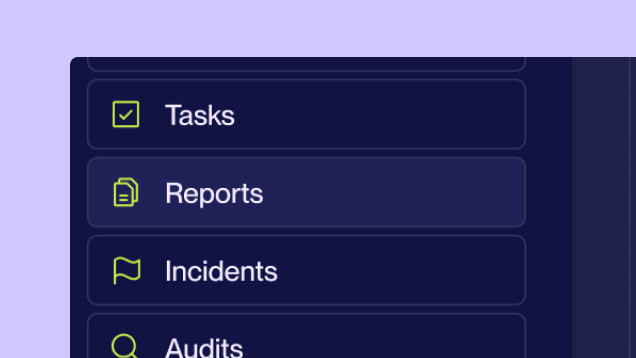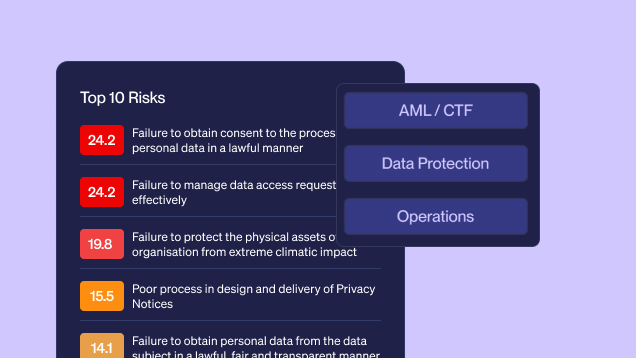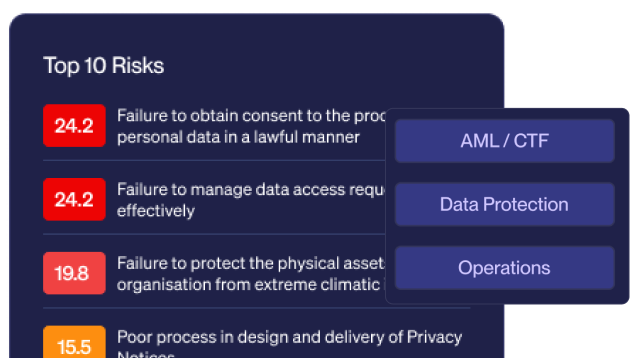Enterprise Risk Management that brings clarity to complexity
Identify, assess and monitor risks across your entire organisation with complete visibility and control.

Trusted by hundreds of clients globally
















































Master enterprise-wide risk
Gain complete visibility across your risk universe with clarity, consistency and real-time intelligence.

Report at the click of a button
Generate tailored reports on risks, controls and more with a single click.

Track tasks and accountability
Assign and track remediation actions across your team ensuring nothing slips through the cracks.

Streamline internal controls
Use pre-populated libraries to map risks to controls, assign ownership and track control testing.

Configure without coding
Tailor structures and alerts to your exact needs using powerful no-code configuration options.
Related roles that benefit from our platform.
From risk professionals to executive leadership, enterprise risk management provides critical visibility and control across your organisation.
Ready to elevate your approach to ERM?
Schedule a 30-minute platform walk-through with our expert team.
